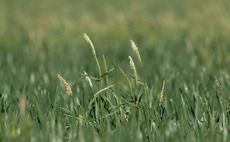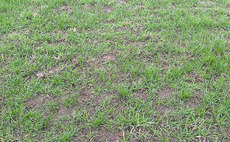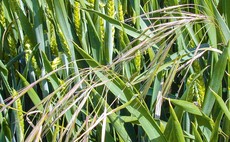Black-grass
Arable
A new study is seeking to tackle weed infestation and herbicide resistance by detecting and quantifying arable weed seeds in the soil using environmental DNA technologies.
Arable
Consider spring herbicide programmes carefully to avoid carryover of residual activity from spring applied sulphonylurea (SU) herbicides, particularly if it remains dry and then turns wet later in the season.
Arable
Early drilled winter wheat is at risk of heightened weed burdens after dry conditions have prevented pre-emergence herbicides from working effectively, growers are being advised.
Arable
Growers are being urged to hold their nerve in bad black-grass fields.
Arable
Black-grass emergence is expected to be rapid this season after assessments by agriculture consultant ADAS have shown a high number of weed seed samples with low dormancy.
Arable
BASF has received approval in Great Britain for its new active substance, Luximo (cinmethylin), and the product containing this active, Luxinum Plus, providing a new mode of action against grass-weeds.
Arable
An AHDB PhD student is exploring how root exudates help some cereals to compete with black-grass.
Arable
A project investigating brome on UK arable farms has found all brome species have increased in prevalence and some are becoming less sensitive to certain herbicides.
Arable
Following the end of the use up period for bromoxynil last month, linseed growers are reminded they still have a means of controlling difficult to control broadleaved weeds thanks to an EAMU.
Arable
After a prolonged dry and settled late summer, some soil moisture will now bring a welcome chance for finer seedbed preparation, as well as a boost to residual herbicide performance.


 29 December 2022
•
2 min read
29 December 2022
•
2 min read









